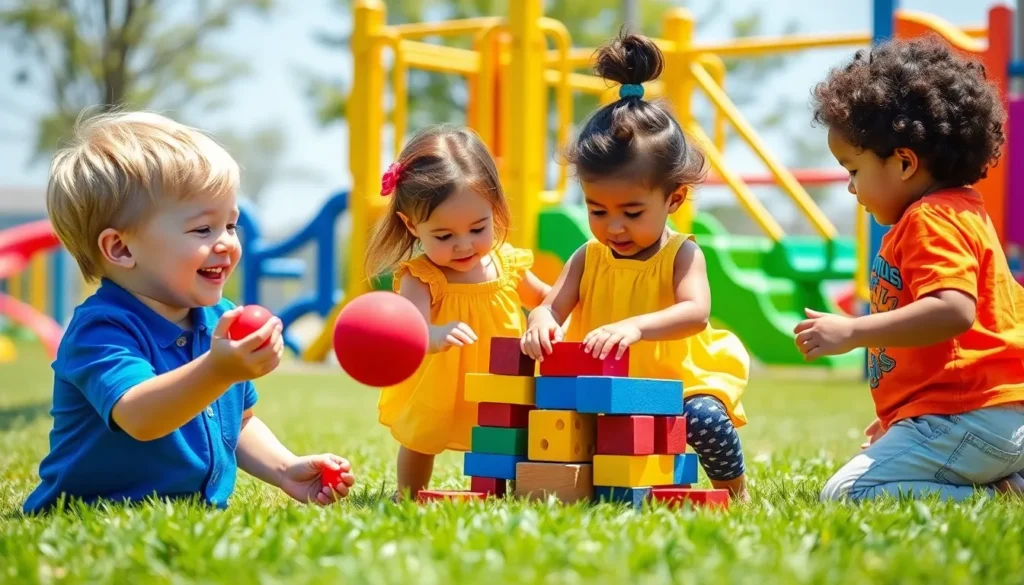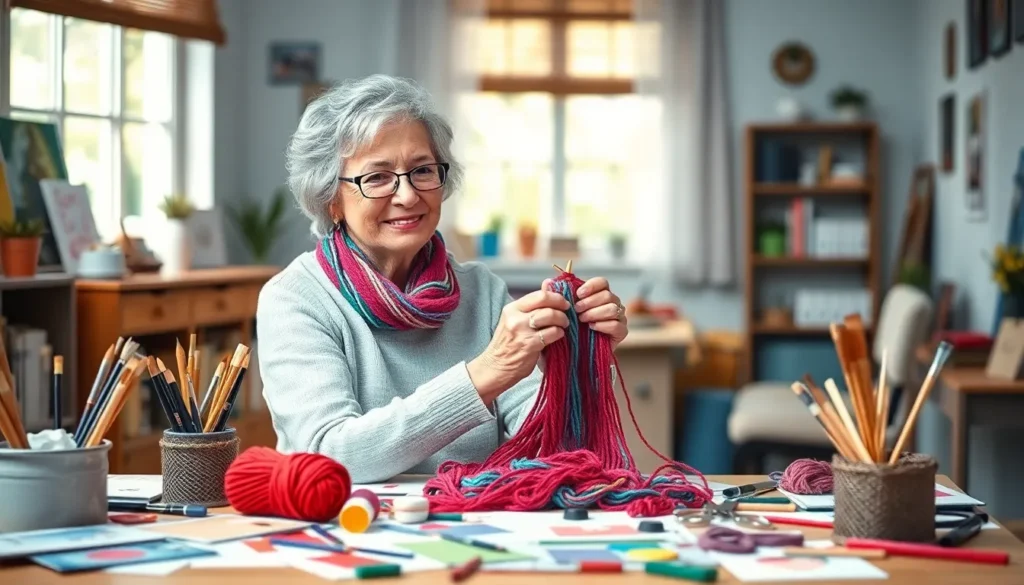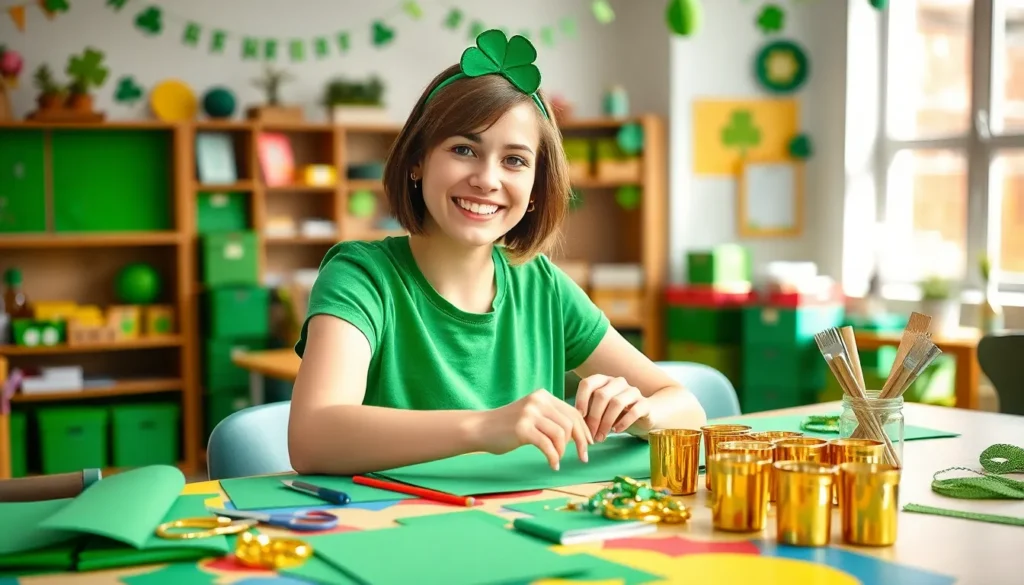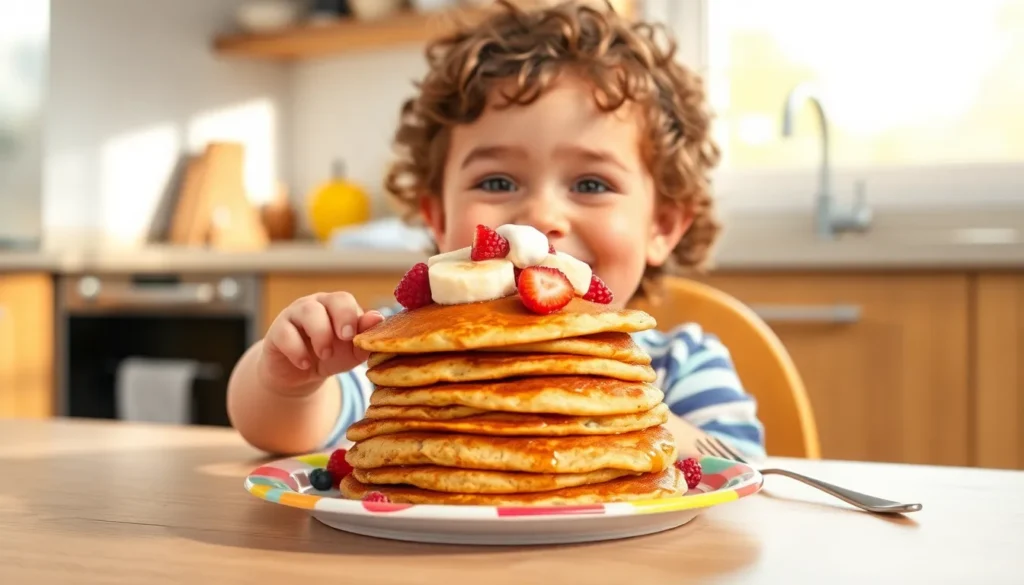Table of Contents
ToggleNavigating the wild world of toddler social development can feel like trying to herd cats—adorable, chaotic, and often unpredictable. At this age, kids are not just learning to walk and talk; they’re also mastering the art of friendship, sharing, and the fine balance between playtime and snack time. As parents and caregivers, understanding these social milestones is crucial for fostering confident little humans ready to take on the playground.
Understanding Toddler Social Development
Toddler social development encompasses skills crucial for forming connections and navigating interactions with peers. Children aged 1 to 3 progress through key milestones, showcasing their ability to engage in cooperative play and learn the principles of sharing. Social development occurs alongside emotional and cognitive growth, highlighting its multifaceted nature.
Awareness of social cues, such as body language and facial expressions, emerges during this phase. By age 2, many toddlers initiate simple games, like hide-and-seek or taking turns with toys, which fosters their understanding of social dynamics. Practicing these skills in diverse environments, including playgroups and family gatherings, enhances toddlers’ comfort in varied social situations.
Communication plays a pivotal role in social interactions. As toddlers expand their vocabulary, they gain the ability to express wants, needs, and feelings. Language serves as a tool for building relationships and resolving conflicts, contributing significantly to social competence.
While some toddlers may exhibit shyness or reluctance to engage, this behavior is a typical aspect of development. Encouragement from caregivers can promote confidence, helping children to step out of their comfort zones. Positive reinforcement after successful interactions motivates continued exploration of social opportunities.
Parents and caregivers should prioritize supervision during playdates and social activities, as guidance can support healthy interactions. Monitoring behavior provides insights into how toddlers navigate friendships and respond to social challenges. Understanding these dynamics allows caregivers to facilitate constructive experiences.
Supportive environments enhance social development outcomes. Engaging in group activities, such as classes or team sports, cultivates teamwork skills and fosters empathy. Opportunities for collaborative play contribute to self-awareness and help toddlers learn the value of cooperation.
Key Milestones in Toddler Social Development
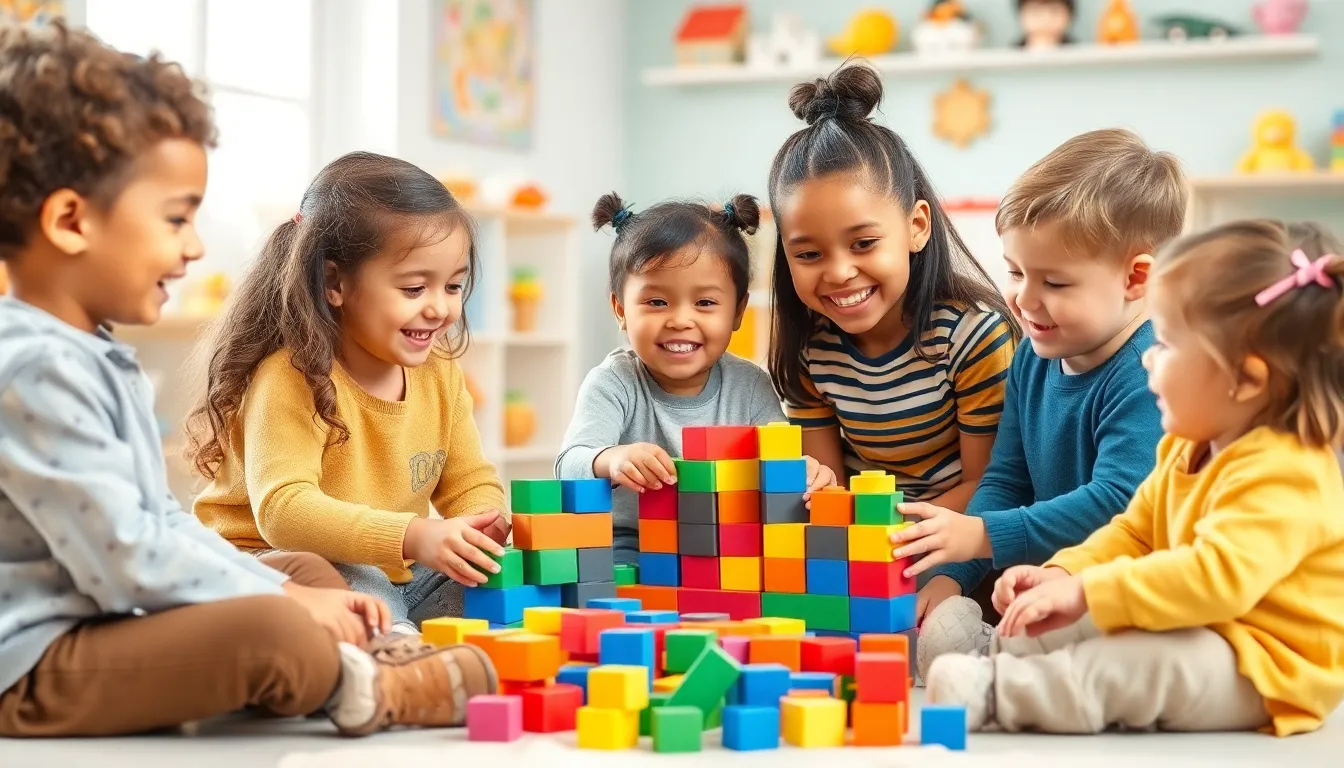
Understanding toddler social development focuses on key milestones that occur between ages 1 and 3. These milestones include early interactions and cooperative play, both essential for building social skills.
Early Interactions
Initial interactions often vary, ranging from simple gestures to more complex exchanges. By age 1, toddlers begin to recognize familiar faces and demonstrate preferences in social settings. They exhibit interest in adults and peers, often through smiles or pointing. By age 2, toddlers initiate eye contact and engage in turn-taking during conversations. Communication at this stage expands as they learn to express feelings like happiness and frustration. Social exploration allows toddlers to feel secure in their environments, laying the foundation for future relationships. Caregivers play a crucial role by modeling interactions and providing opportunities for social engagement.
Cooperative Play
Cooperative play signifies a critical milestone in toddler social development. This form of play emerges around age 2 when toddlers start participating in group activities. They learn to share toys and take turns while playing simple games together. Toddlers also begin to recognize and navigate social dynamics, such as group rules and roles. At this stage, they engage more deeply with peers, showing interest in each other’s actions. Encouraging cooperative play enhances qualities like teamwork, empathy, and conflict resolution. Successful interactions during play help boost toddlers’ confidence and foster social competence.
Factors Influencing Toddler Social Development
Toddler social development is greatly influenced by various factors that shape their interactions and overall behavior.
Family Environment
Family dynamics play a crucial role in social development. Warm and responsive parenting fosters secure attachments, encouraging toddlers to explore social environments. Positive reinforcement from family members promotes sharing and cooperation during play. Routine family interactions also model appropriate social behaviors, providing toddlers with essential tools for future relationships. Multicultural environments can expose toddlers to diverse social norms and practices, enhancing their adaptability and empathy. Stability within the home, paired with open communication, equips children with confidence to engage socially.
Peer Interactions
Peer interactions offer essential opportunities for toddlers to develop social skills. Engaging with peers helps toddlers learn negotiation and conflict resolution through play. Participating in group activities, such as playdates or preschool settings, encourages cooperative play. Each encounter provides challenges that enhance communication and emotional regulation. Varied social experiences enable toddlers to recognize and interpret social cues, forming connections with others. Such interactions also boost self-awareness and reinforce concepts like sharing and empathy, cultivating strong foundational skills for future relationships.
Strategies to Support Toddler Social Development
Supporting toddler social development can happen through several strategies that empower children to navigate their social world. Parents and caregivers play a pivotal role in this process.
Encouraging Social Skills
Role modeling positive interactions fosters social skills in toddlers. Engaging in conversations even with simple questions encourages turn-taking. Sharing experiences during storytelling enhances communication. Praising efforts to share or invite peers to play strengthens cooperative behavior. Encouraging expression of emotions helps toddlers understand feelings. Participating in games that require teamwork reinforces collaboration and empathy. Observing peer interactions during playdates provides valuable insights into negotiation and conflict resolution. Each interaction contributes to building a foundation for healthy relationships.
Creating Play Opportunities
Structured playdates provide safe settings for social growth. Collaborative toys like blocks, puzzles, and art supplies encourage teamwork. Setting up small group activities enhances social dynamics and cooperation. Outdoor adventures, such as visiting parks, promote peer interaction in varied environments. Encouraging participation in community programs expands social horizons. Group sports or classes offer structured settings for developing social skills. Providing consistent opportunities for interaction helps toddlers practice sharing and cooperation regularly. Every opportunity nurtures essential life skills that benefit their future relationships.
Toddler social development is a vital aspect of early childhood that shapes future interactions and relationships. By understanding key milestones and the role of supportive environments, parents and caregivers can effectively nurture their child’s social skills. Encouraging cooperative play and providing opportunities for peer interactions are essential steps in fostering empathy and teamwork. With the right guidance and encouragement, toddlers can confidently navigate their social landscapes, laying the groundwork for healthy relationships in the years to come. Embracing this developmental journey not only benefits the child but also enriches family dynamics and community connections.
